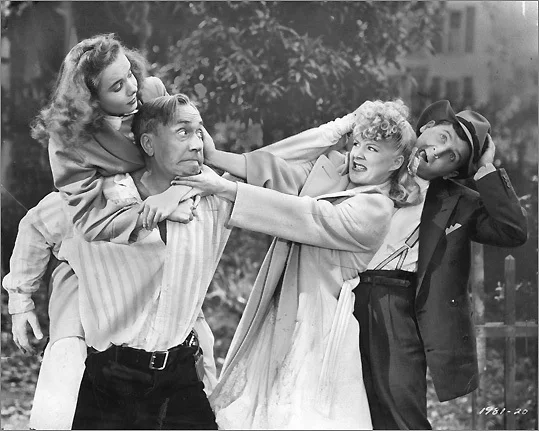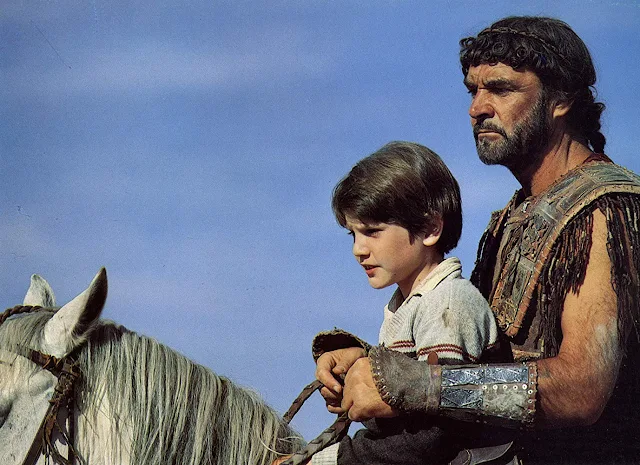Cast: Deborah Kerr, David Farrar, Kathleen Byron, Flora Robson, Sabu, Jean Simmons, May Hallatt, Jenny Laird, Judith Furse, Esmond Knight, Eddie Whaley Jr. Screenplay: Michael Powell, Emeric Pressburger, based on a novel by Rumer Godden. Cinematography: Jack Cardiff. Production design: Alfred Junge. Film editing: Reginald Mills. Music: Brian Easdale.
This much-loved film has so far escaped condemnation for its "orientalism," the brown-face performances of Jean Simmons, May Hallatt, and Esmond Knight, and its treatment in general of the Indian characters as mysterious and alien. And perhaps it's better to concentrate on the erotic instead of the exotic in Black Narcissus, to enjoy its stunning, Oscar-winning cinematography and production design. Who can forget the vertiginous moments at the precipice where the bell was rung -- even though those moments were sheer camera-trickery, accomplished in the Pinewood Studios with matte paintings? Or the erotic charge every time David Farrar walks shirtless among the nuns and Kathleen Byron gives him the eye?






























